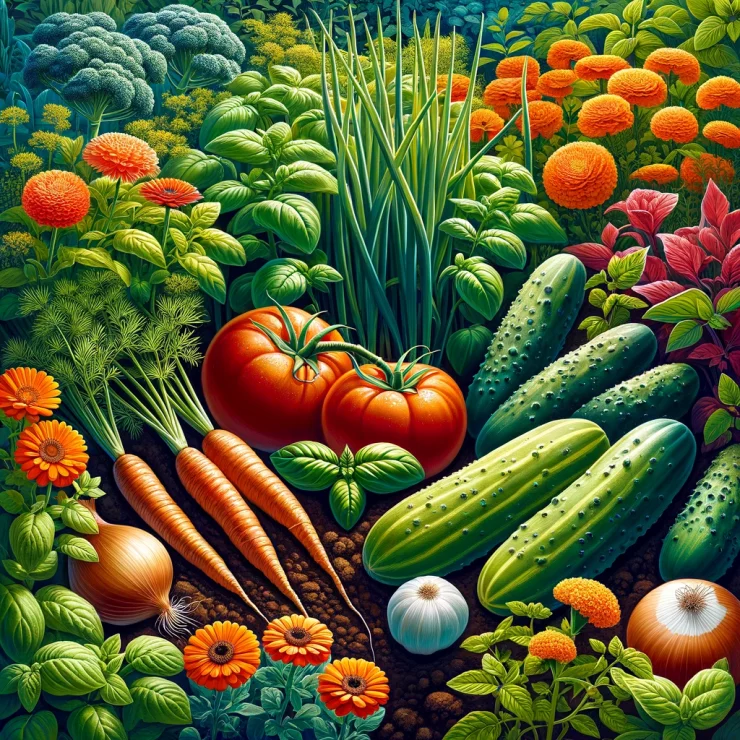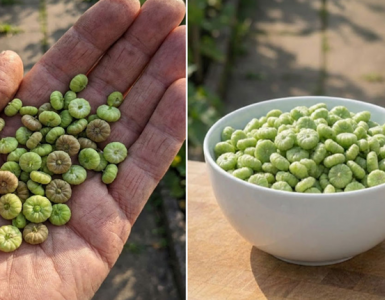Creating a vibrant and flourishing garden is not just about choosing the right plants; it’s also about strategic placement. Certain plants have natural affinities for one another, and when grown side-by-side, they can enhance each other’s growth, deter pests, and improve overall yield. This symbiotic relationship, known as companion planting, has been practiced for centuries and continues to be a fundamental principle in sustainable gardening. Here are seven pairs of plants you should always consider growing together for a thriving garden:
Tomatoes and Basil: Tomatoes emit compounds that repel pests that commonly attack basil, such as mosquitoes and flies. In return, basil enhances the flavor of tomatoes while also deterring pests like aphids and tomato hornworms. Plant basil around your tomato plants to improve their growth and flavor.
Carrots and Onions: Carrots and onions make excellent companions underground. Onions help repel carrot flies and other pests that might damage carrot roots, while carrots deter onion flies. Plus, the scent of onions can confuse pests that might otherwise be attracted to carrots. Plant them together for healthier crops.
Corn, Beans, and Squash (The Three Sisters): This Native American planting technique involves interplanting corn, beans, and squash. Corn provides support for the beans to climb, beans fix nitrogen in the soil, benefiting the nitrogen-hungry corn, and squash spreads along the ground, suppressing weeds and preventing soil erosion. Together, they form a mutually beneficial ecosystem that promotes healthy growth.
Lettuce and Radishes: Radishes act as natural pest deterrents for lettuce, repelling leaf-eating insects like aphids and cucumber beetles. Additionally, radishes mature quickly and can be harvested before they interfere with the lettuce’s growth. Planting them together maximizes space and helps keep pests at bay.
Cucumbers and Nasturtiums: Nasturtiums are not only beautiful additions to the garden but also serve as excellent companions for cucumbers. They repel pests like cucumber beetles and aphids while also attracting beneficial insects like bees and predatory insects that feed on pests. Plus, nasturtiums can act as a living mulch, conserving soil moisture and suppressing weeds around cucumber plants.
Peppers and Marigolds: Marigolds are renowned for their ability to repel nematodes, a type of soil-borne pest that can damage pepper roots. Planting marigolds around pepper plants can help prevent nematode infestations and improve overall plant health. Additionally, marigolds attract pollinators and other beneficial insects that support pepper growth.
Rosemary and Sage: These aromatic herbs not only add flavor to your culinary dishes but also serve as excellent companions in the garden. Both rosemary and sage repel pests like cabbage moths, carrot flies, and bean beetles, making them valuable additions to vegetable gardens. Plant them near susceptible crops to deter pests and enhance growth.
By incorporating these companion planting strategies into your garden, you can create a more resilient and productive growing environment. Experiment with different combinations and observe how these plant partnerships contribute to the overall health and abundance of your garden. With thoughtful planning and a bit of experimentation, you can enjoy a bountiful harvest while promoting biodiversity and sustainability in your garden ecosystem.






Add comment